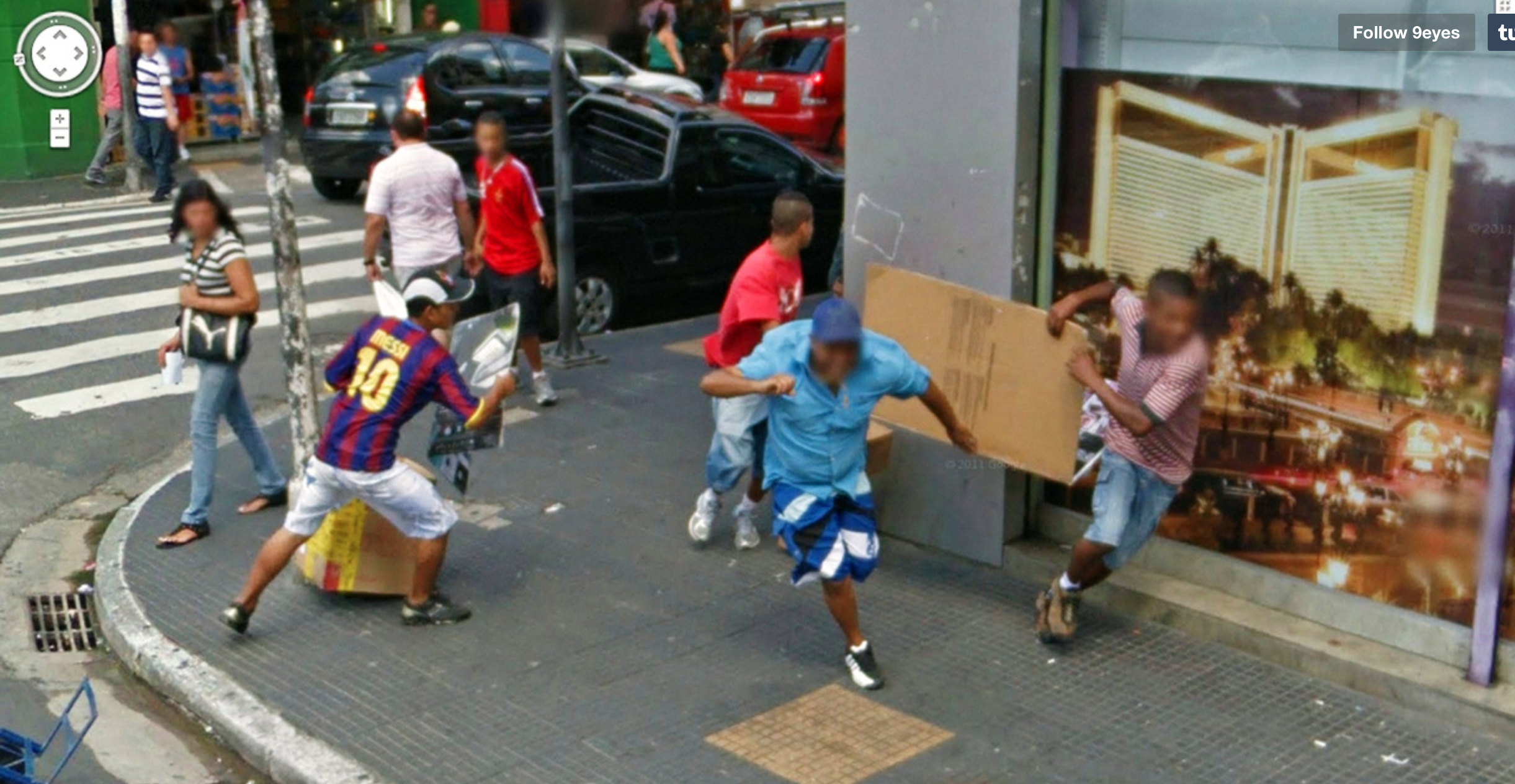One of the larger ideas behind Rafman’s work is questioning the ethical implications of “functional” artwork. More specifically:
"Highlighting and indulging in the unsettling ethical implications of making images of individual people’s lives 'accessible and useful' to all users."
Rafman points out the excuse internet companies use to invade privacy and, in a way, predicts and explains our current levels of capital surveillance.
Another big point of the artwork is to point out the idea of foreign familiarity and romanticism. Most, if not all, of these photos are things we haven't seen or experienced
yet they seem familiar. This can spark a variety of strange emotions, especially in the context of grave or unsafe situations. Additionally, because we understand these photographed
situations without actually living them, romanticism of unvisited or unknown experiences is born.


